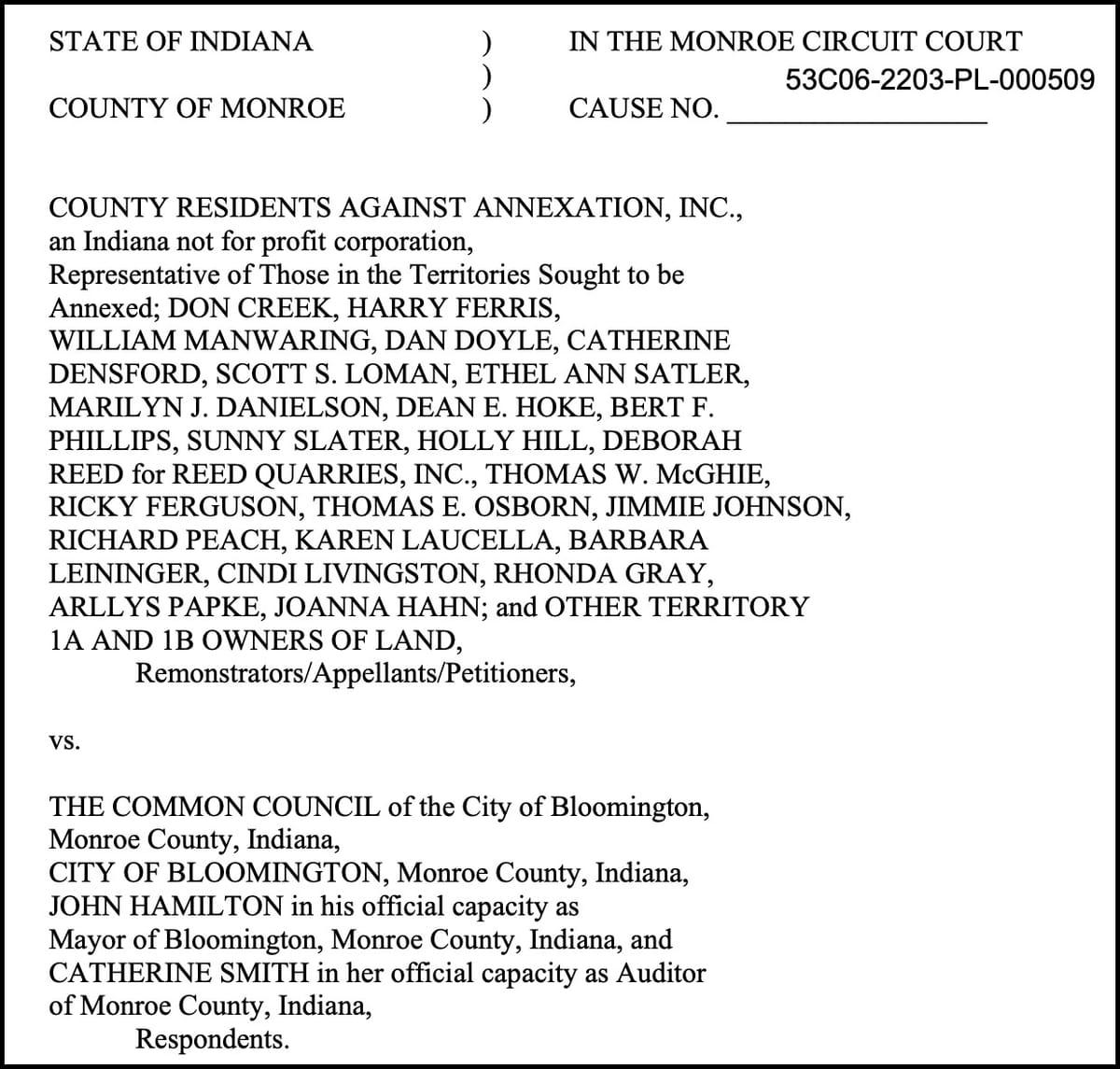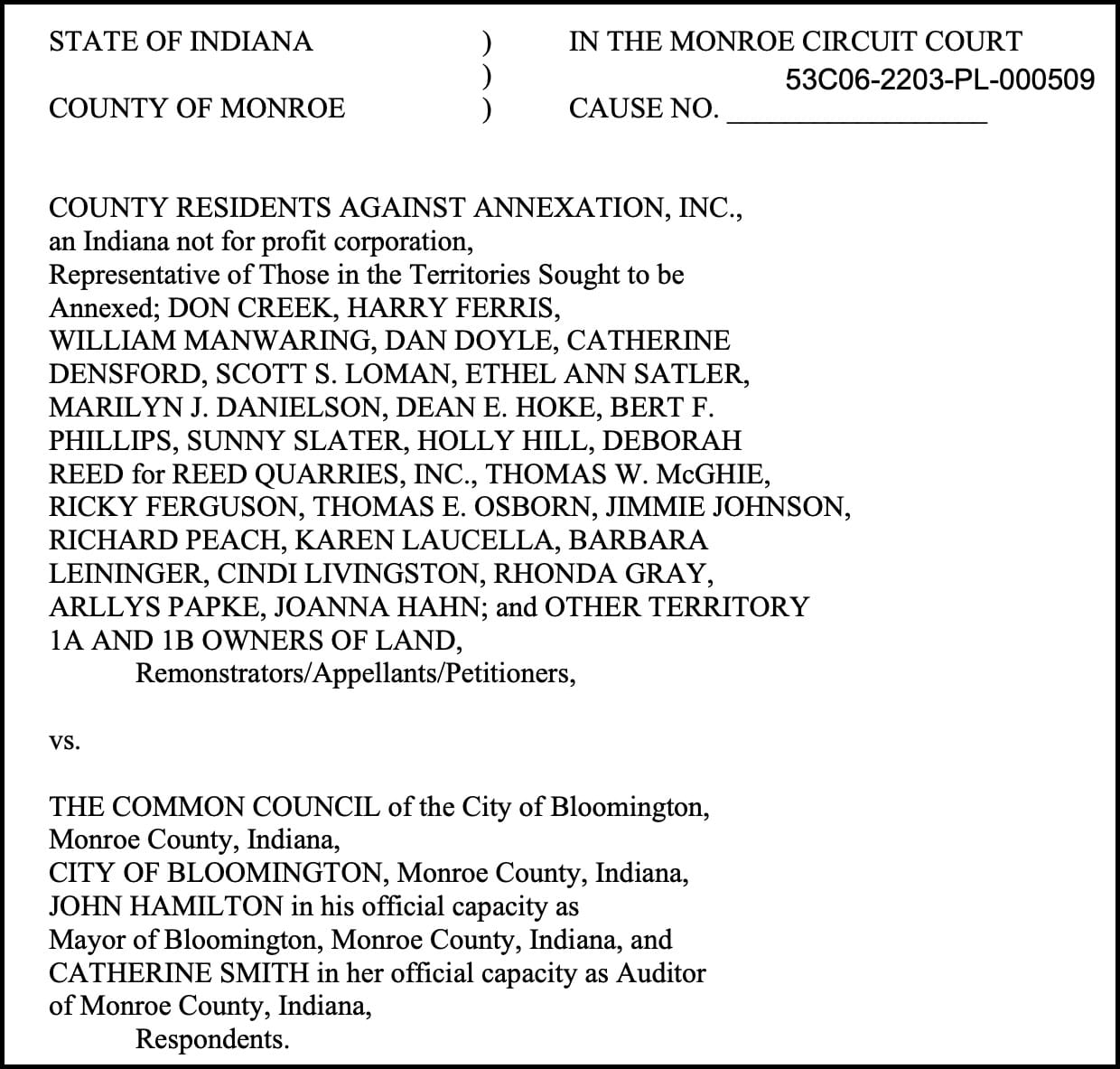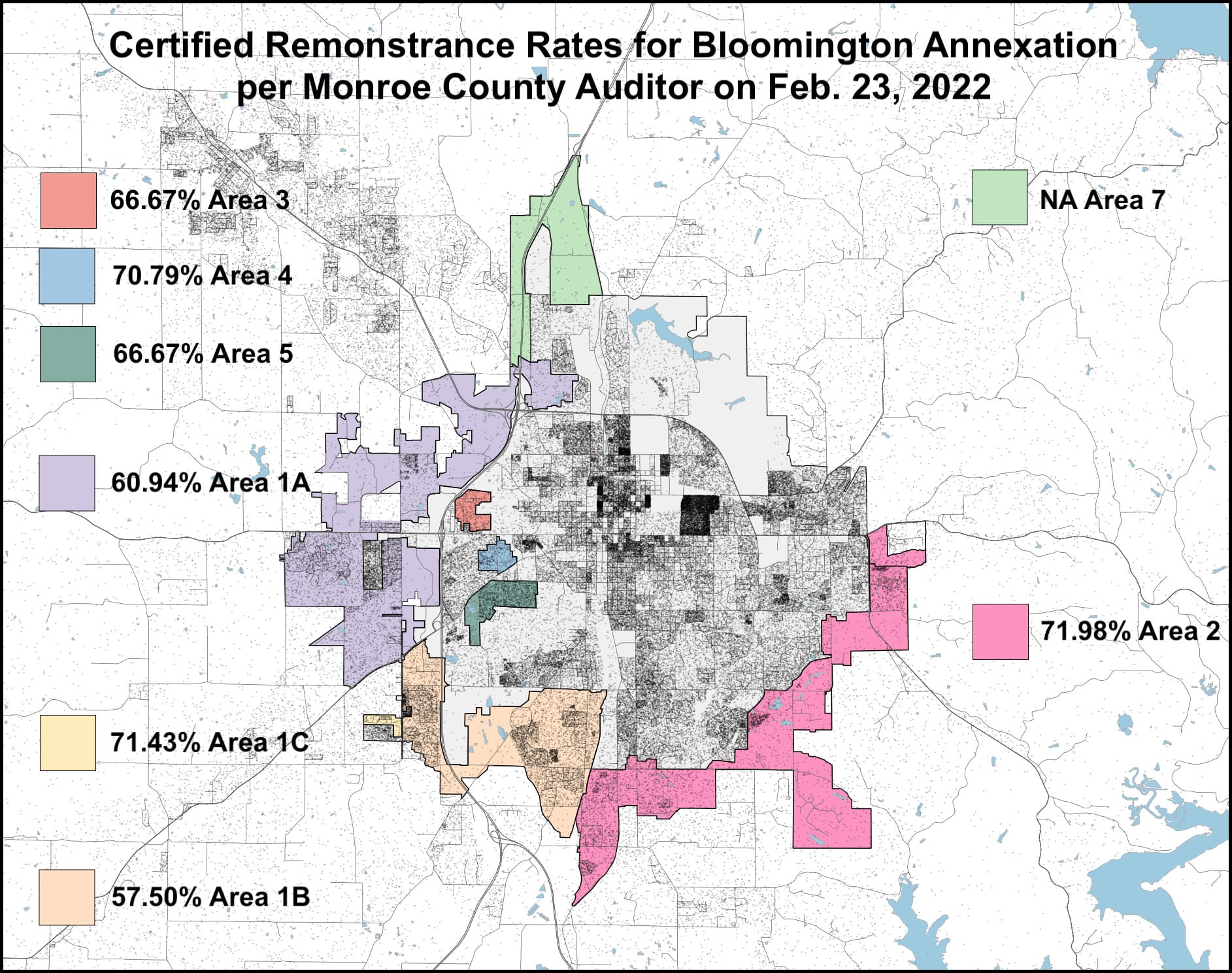Court action filed by property owners in two territories opposing Bloomington’s annexations




A couple dozen property tax payers spread across two of Bloomington’s annexation areas have now filed a legal action under state law to void the ordinances that were enacted by the city council in the third week of September 2021.
The complaint, filed in the Monroe circuit court on Wednesday afternoon, lists 24 plaintiffs.
Listed as defendants are Bloomington’s city council, the city of Bloomington, John Hamilton in his official capacity as mayor of Bloomington, and Catherine Smith in her official capacity as auditor of Monroe County.
The two areas that will now get scrutiny by a circuit court judge are 1A just to the west of Bloomington and Area 1B to the southwest.
The plaintiffs are represented by attorneys from the Bunger & Robertson law firm.
In broad strokes, the complaint filed on Wednesday contends that a substantial list of conditions in the statute are not satisfied, which would otherwise force the court to order that the annexations should take place [IC 6-4-3-13].
In addition, the complaint asks the court to grant an additional 90 days to collect signatures—because the COVID-19 pandemic hampered signature collection efforts.
The complaint also contends that the county auditor has disallowed some remonstrance signatures that should have counted.
The complaint also contends that a proper public hearing was not held on the annexations.
Wednesday’s court filing was made possible because Area 1A and Area 1B separately achieved remonstrance signatures from more than 50 percent of property owners, but less than 65 percent, according to the county auditor’s certified results. If 65 percent of signatures had been collected, that would have meant an automatic stop to Bloomington’s annexations of the two areas, without review by a court.
Even the remonstrance efforts in the five areas that hit the 65-percent threshold will almost certainly see review in court. That’s because the city of Bloomington will almost certainly challenge the auditor’s certified results. The percentages of signatures in those areas depend on discounting some of the remonstrance waivers attached to the properties.
A remonstrance waiver is a signed document that gives up the right of a property owner to remonstrate against annexation, in exchange for the ability to hook up to the city’s sewer system.
The state legislature passed a law in 2019 that voids any remonstration waiver signed before July 1, 2003. The county auditor followed that law in her analysis of valid remonstrance signatures. Bloomington contends that the 2019 is itself not valid, or at least that it should not apply to the current process, because the city’s annexation effort began in 2017.
If Bloomington were to prevail on the question of the remonstrance waivers, it would render moot the other legal issues that would otherwise be analyzed in connection with the substance of a remonstrance effort that falls between 50 and 65 percent.
Here’s the kind of considerations that will form the substance of the court battle, if it progresses to the substance of the annexation law.
Under the law, one of the boxes that Bloomington could check towards satisfying sufficient conditions to force annexation includes satisfying one of the following three conditions:
(A) The resident population density of the territory sought to be annexed is at least three (3) persons per acre.
(B) Sixty percent (60%) of the territory is subdivided.
(C) The territory is zoned for commercial, business, or industrial uses.
Wednesday’s complaint says that none of those conditions are met.
If none of those conditions are met, then the law offers an alternative.
That alternative includes establishing that the territory is “needed and can be used by the municipality for its development in the reasonably near future” or that the territory sought to be annexed “involves an economic development project.” Wednesday’s complaint says that neither of those conditions are met.
Those are just a few of the various conditions that could come together to force a court to order the annexation take place.
There’s already an indication that possibly none of the Monroe County circuit court judges will want to take on the case, and that it will be assigned to a special judge outside the county. That indication comes from a similar court action to Wednesday’s, which was already filed on Monday.
Monday’s filing was made by one property owner, Thomas McGhie, who represented himself. He has since joined the action filed on Wednesday.
Kara Krothe, the judge who was assigned to McGhie’s case, recused herself from it.






Comments ()